My (career) story in tech and developer relations
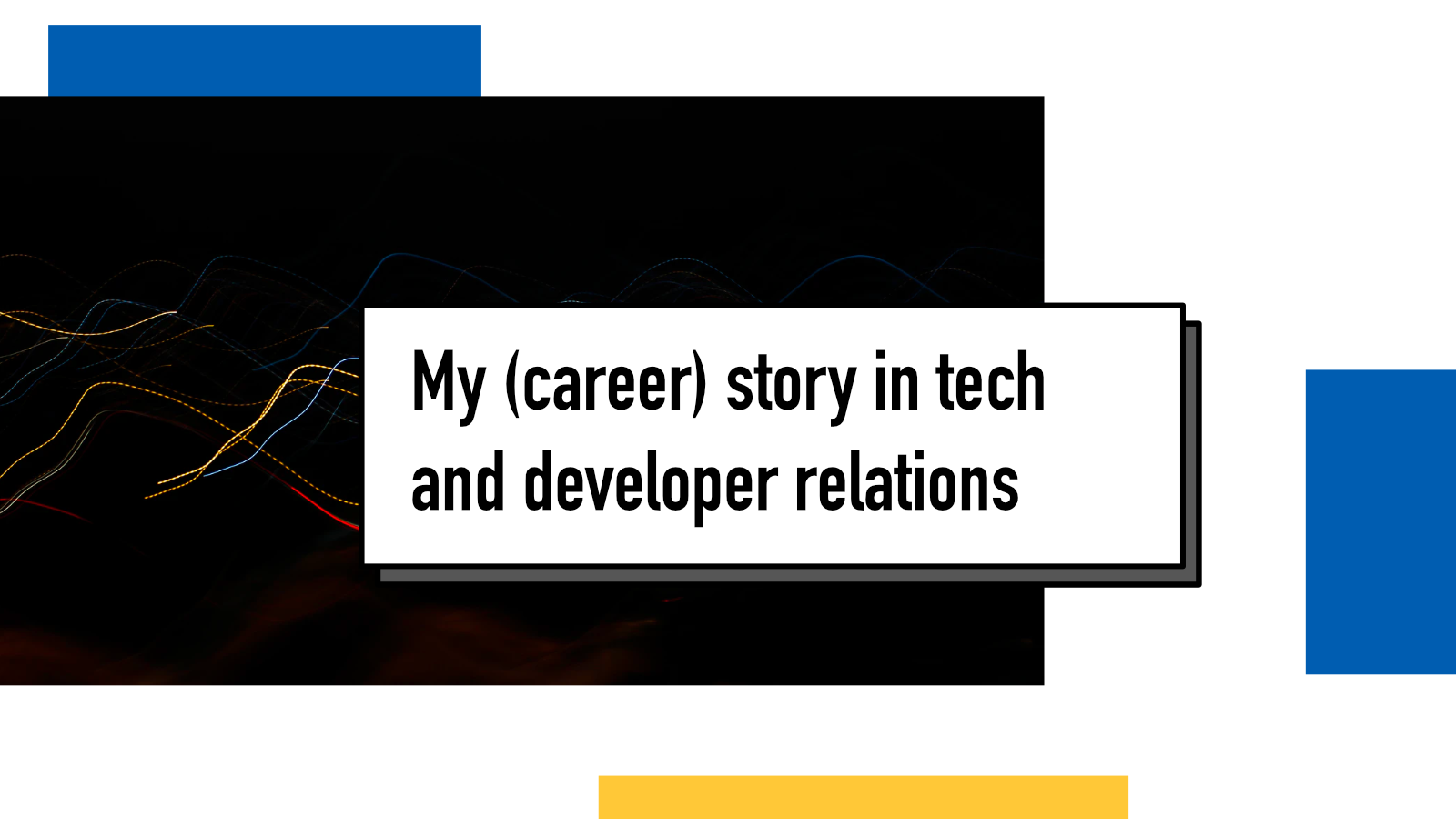
All of our careers are different. When zoomed out enough, they start to blend and look similar but when you really look carefully, all of them are unique. I wanted to share my story on my blog as an example of how I ended up where I am and hopefully give inspiration to someone who doesn't see themselves in a "I didn't know anything about coding a year ago and now I make $200k at Facebook" story that you occasionally see in social media.
That is not to say that there's anything wrong with those paths either. But I do want to provide another example of way slower progression because when I look at the stories that gain most popularity in social media, it makes me feel inadequate because it took me a decade to learn programming and years to become employed in developer relations.
In the early 1990s…
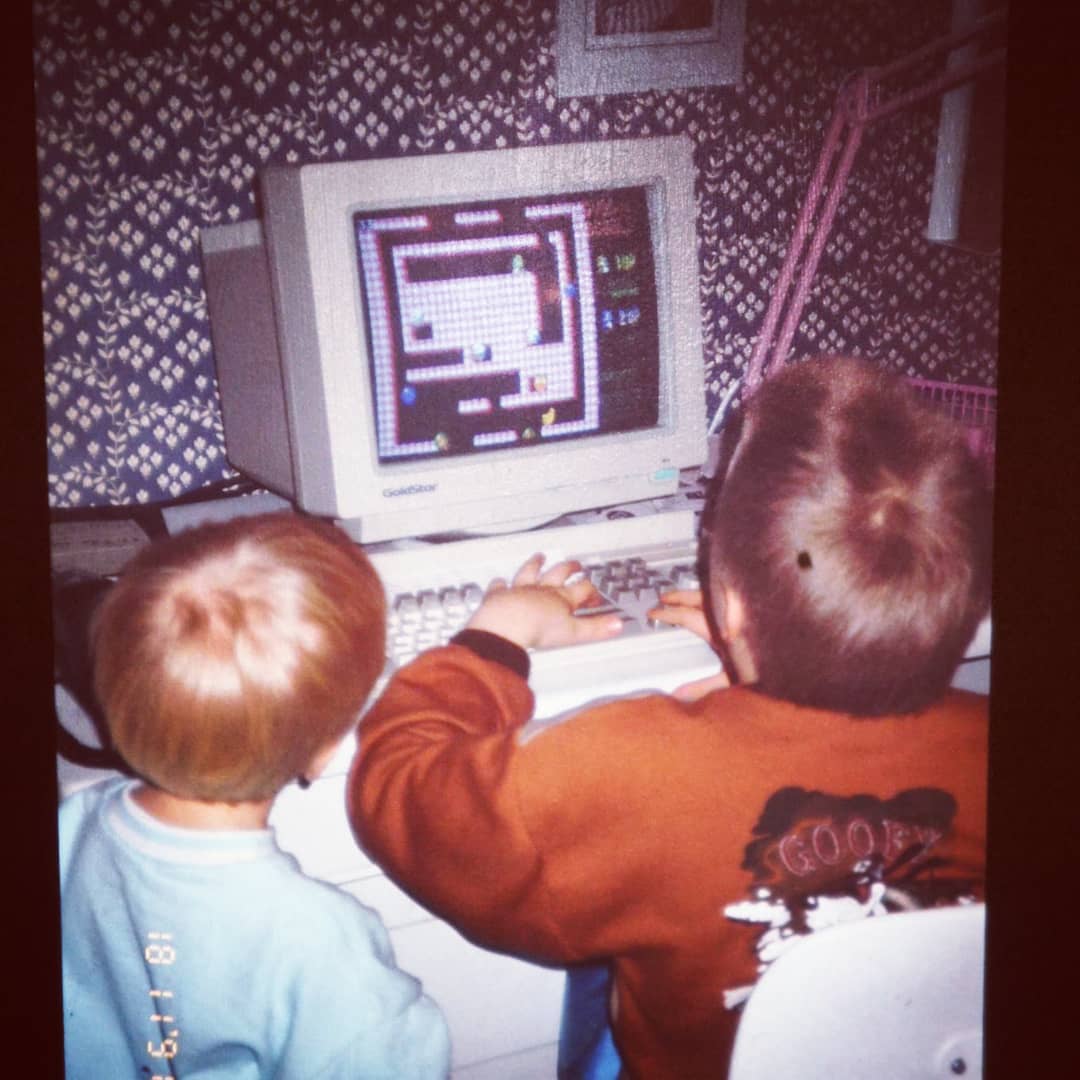
My first touch to computers happened very early on, in the turn of the 1990s. Our first computer was a 286 computer with MS-DOS and Windows 3.0. It still sits in my childhood home's bedroom but hasn't been booted up in decades.
I spent my childhood with this computer. I would play games like Supaplex and Bubble Bobble, learn how to operate the computer on a command line, use MS Paint and write in a text editor. I remember one time when my sister was reading a book out loud to me and I would type it to the computer. That was how I learned to write, even though I didn't understand all the words yet.
At some point, my sister had made a picture of some horses with MS Paint. The picture was larger than what fit into the GoldStar monitor of ours (seen in the picture above) and I vividly remember being so curious (and bit annoyed) when my sister would scroll to show the right-most horse in the picture (and then hide it from me again). I don't know how much of that memory is true and how much has changed over the years but I credit most of my early curiosity towards computers on that moment. I'm pretty sure that picture is on a floppy disk in one of my boxes at home.
I have a lot to thank to my parents for this early access to computers. I was 2 years old when the first computer came to our house and my parents who were not computer users themselves, gave me pretty much free reign with the computer as long as I was able to use it as they figured out computers might be a thing in the future.
Years went buy and I kept growing up. My fascination towards computers never faded. In the late 90s, we upgraded the computer to a Pentium 3 computer that ran Windows 98. At the same time, we subscribed to a local computer magazine that opened my eyes to so many things about technology.
As the new millenia started, I began to experiment with installing Linux distributions and copying small programs from the magazines to run. My first application was a number guessing game built with Delphi – copied character for character from the magazine.
Then I discovered the web
Somewhere in the early 2000s (around 2002), I started to learn programming with PHP and HTML. As we switched to ADSL internet and I wasn't limited to 15-30 minutes of Internet per day, I spent a lot of my free time reading Finnish programming forums like Mureakuha and Ohjelmointiputka which were kinda the early, local equivalent to Stack Overflow of today.
Little by little, I started to learn. I was building small websites for myself and my hobbies. The combination of my interests lined up really well: ever since being a kid, I was interested in sports and especially sports statistics and those were a very good thing to build software around.
In early 2000s, the access to information and mentoring was not like it is today, especially for someone who didn't come from a family of money and who lived in a small town. We did subscribe to a monthly magazine on personal computing but only rarely was there something in it about programming.
Around the age of 15, I ran a local sports club with my friends and organized tournaments and obviously those tournaments needed a website to showcase the results. I ended up spending 15 years building websites and software for that hobby all the way from local to international level. And I learned lot while doing it.
It was great to have a sandbox of sorts where I could build something other people were actually using but I didn't have anyone telling me what to do. So I could experiment a lot and occasionally break things a lot too.
Studying programming
During high school, I did a double degree program combining the Finnish lukio/ylioppilastutkinto and ammattikoulu/datanomi education. Also during my high school, I enrolled to a special program that gave me access to a minor in computer science in the local university.
That's when I started to learn a bit more about programming in a more theoretical and organized manner. I learned how to build more complex things to websites and got my first touch to object-oriented programming with Java in the university program.
For years and years, my main struggle was that I understood how to build small pieces of functionality like functions/methods but I had no idea how to put those things together to build fully functioning software. It had gotten me surprisingly far when building websites with PHP but it bothered me a lot that I just couldn't figure out how to put things together.
Probably around my first year at the university, I finally started to get a better grasp at these ideas. On my second year, I was already tutoring first-year students and doing teaching assistant jobs at the university, thanks to my interest in helping others learn. I also started doing a bit of freelance software development on smaller projects during my second year – most of them being about cleaning data and transforming it into formats that students of other fields could use in their thesis analyses.
Studying at the university really sped up my learning and freelancing provided a bit of practical application of those skills which helped me develop a more comprehensive picture of software development.
Moving to Silicon Valley
Then suddenly, things started to move fast. After my third year at university, I worked on a larger freelance project that helped me build a great portfolio project. I also learned from a friend about a program called Startup Life (now Startuplifers) that helped local students gain internships in startups in Silicon Valley.
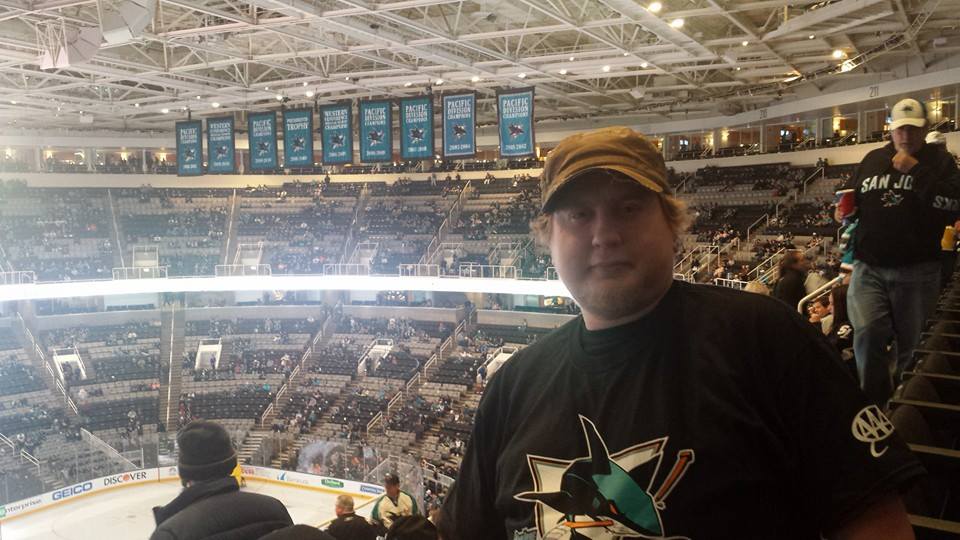
It took me months of preparing, lots of failed interviews and lots of disappointments before I ended up in an interview with Dave & Justin from Chartio and to my delight, they offered me an internship. I moved to San Francisco in 2014 and got to work with a really brilliant team and got to learn from some of the best software engineers I've ever met.
But I was so scared to start there. I didn't have a lot of experience – actually it was my first real job in the industry – but thanks to great mentoring especially from Justin, the CTO, and Paul, my colleague, I started to learn faster and faster and ended up building a few things I'm really proud of.
And not only was the experience of working in a fast-growing startup very educational, it was a very big year of personal growth. It was the first time I lived abroad all alone, with nobody I knew beforehand within thousands of miles. I got to know a lot of amazing people who are still my friends all these years later.
When I returned home after my visa ran out, I joined another startup, Smartly.io which I had a great, yet short experience with. I ended up leaving after a few months due to not finding the ad tech industry something I wanted to work with. At Smartly, I got to continue my learning journey that had started at Chartio in a very similar environment.
Community Management
And then I did something a bit strange – I kinda left tech, or at least software development. After leaving Smartly, I got a job as a community manager in a non-profit startup community Boost Turku. At Boost, I ended up working for two years, organizing dozens of events and running two batches of a successful startup accelerator program Startup Journey.
My time at Boost was one of the most fulfilling times of my life. Working in a non-profit really fit my values and the ability to build a vibrant community of enthusiastic young people around it was really exciting. And I've been happy to help out the community also as an alumni coaching startups and hosting workshops.
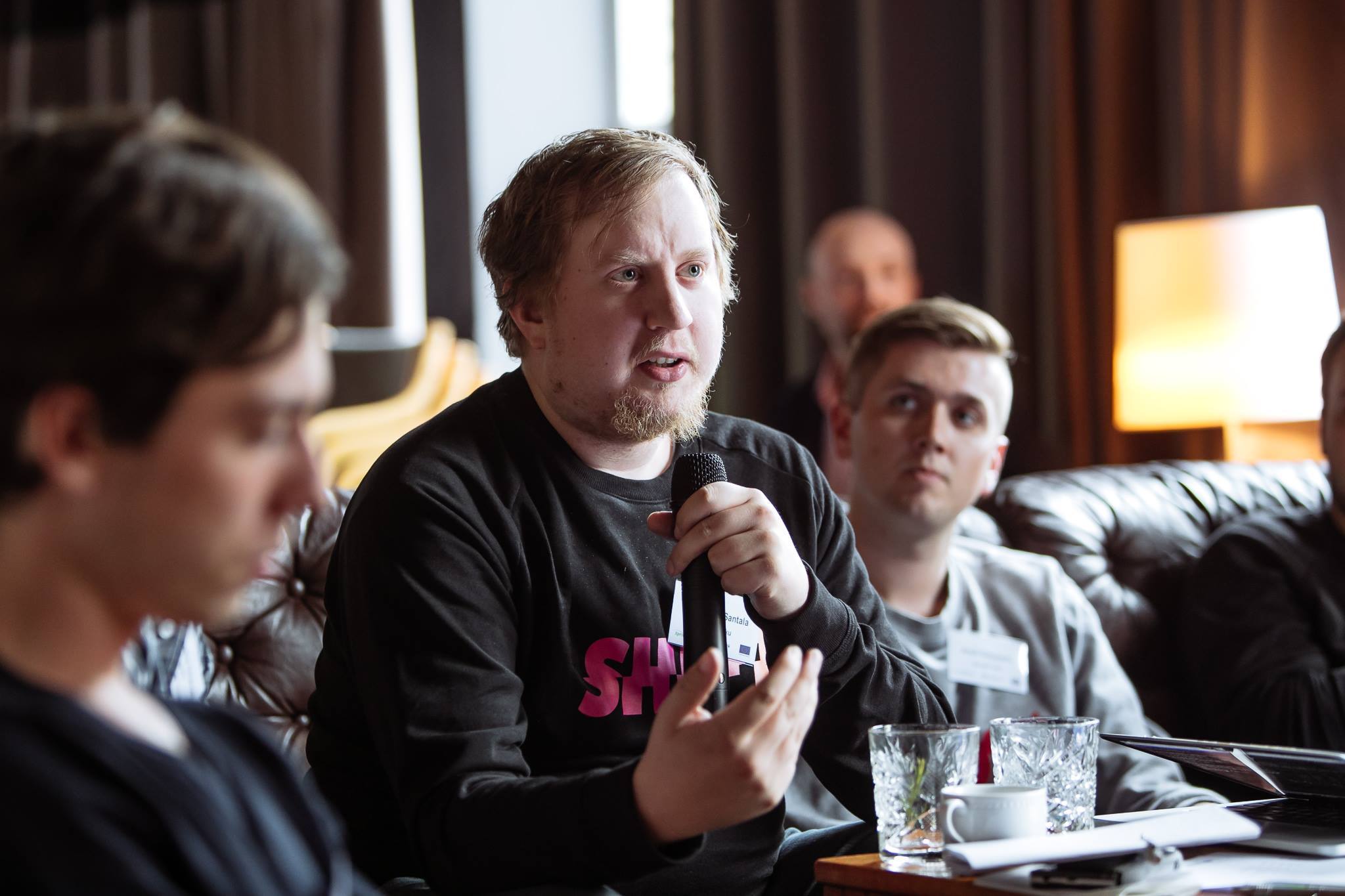
But I also didn't quite tech completely. I figured I might not end up liking community management after all, so I decided to stay up to date on all things tech and founded Turku <3 Frontend, a frontend developer community that grew bigger than I had ever imagined. I can't wait for us to be able to host regular meetups again. Through that I made so many amazing friends and got my first touch into building developer communities – and learned I'm pretty good at that. Much better, than I was as a software developer and much more at home with that.
As years went on, I realized that I could maybe do that for a living. I started to dream about speaking in a tech conference (did my first one in Finland at PyCon Finland 2016 and first international at PyCon CZ in 2019).
In 2018, I joined my current company at Futurice and little by little over the first year, built a case for developer advocate role, pitched that to the leadership and in 2019, started as a full-time developer advocate that I have now enjoyed over the past two years.
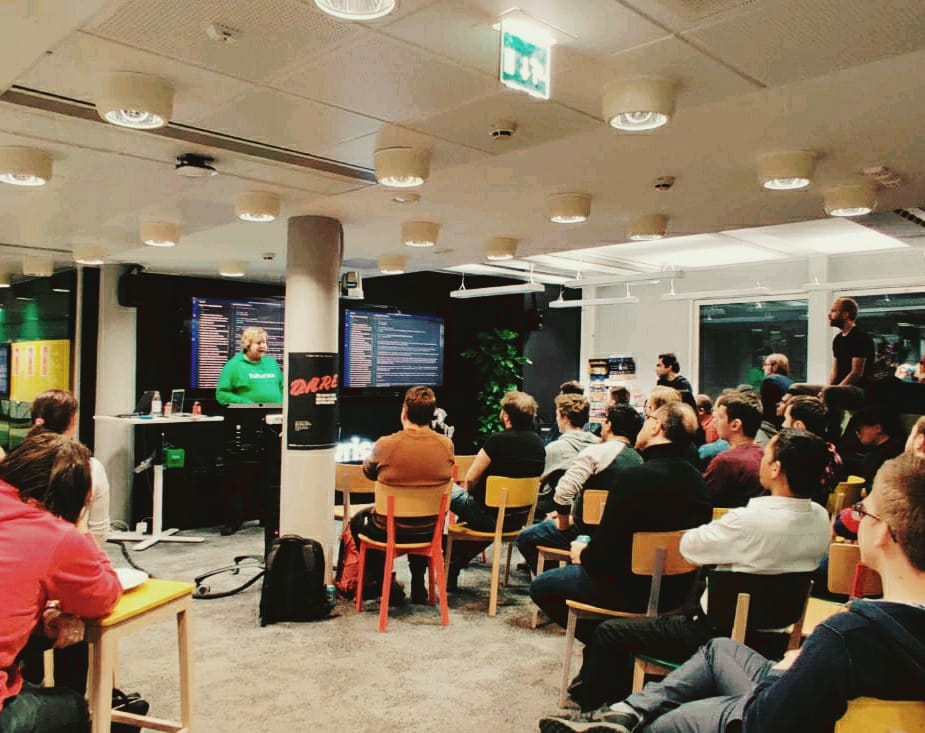
During those years, I've launched new initiatives like Dev Breakfast newsletter, worked on existing ones like Tech Weeklies and Global Code Camp but also organized, hosted and spoken in a big number of meetups and conferences. I've also worked with local developer communities and meetups to help them prosper and helped my great colleagues to get into public speaking, from sharing to collegues all the way to the conference stages.
In addition to work stuff, my hobbies have been around developer communities as well. I love teaching programming and I've been active in multiple communities like Rails Girls, codebar and Boost Summer of Programming, helping new people get excited about technology.
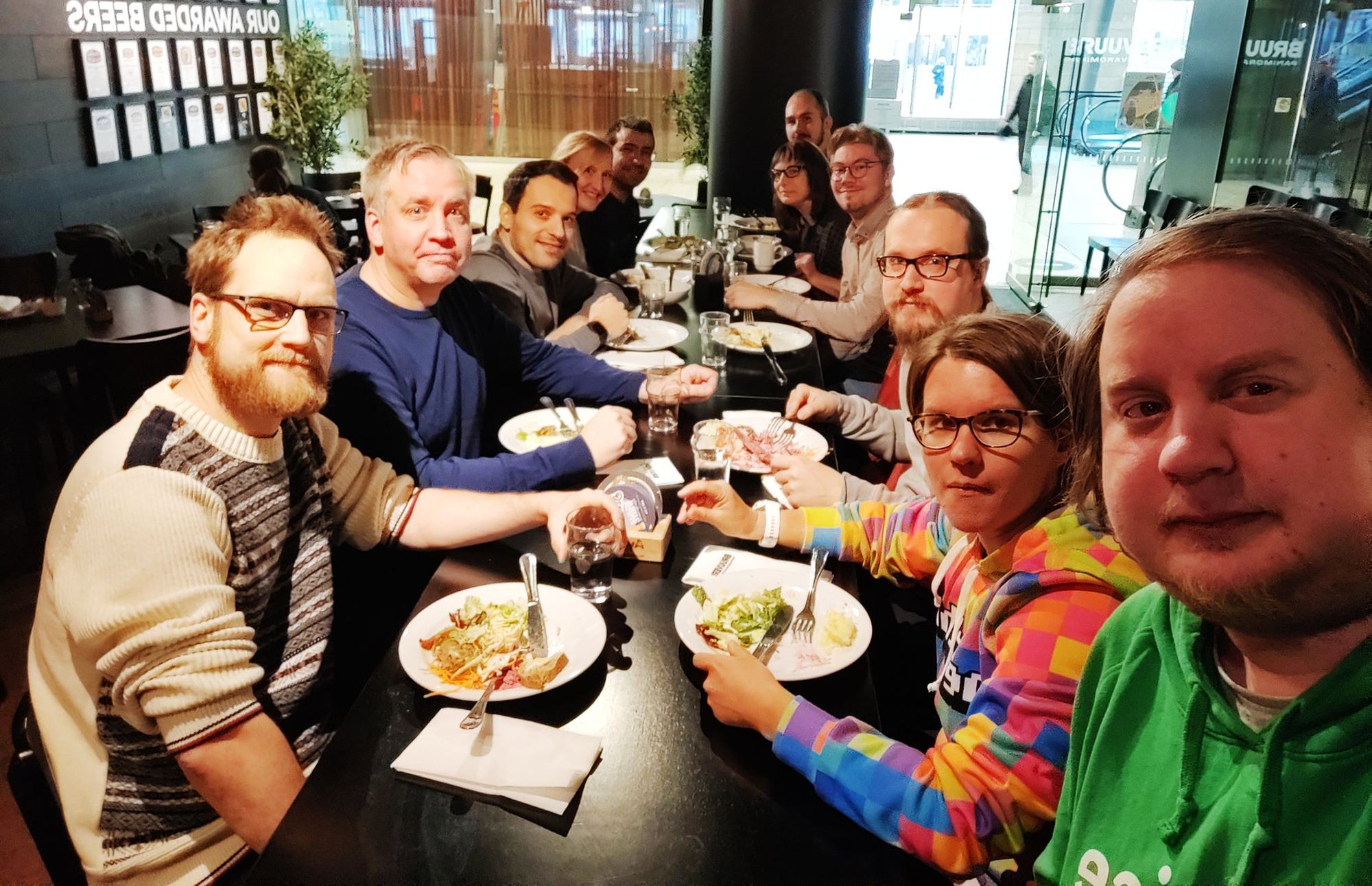
I also blog frequently in this blog and occasionally write articles and blog posts to other places as well. All with the hopes of inspiring people to get into tech and helping them to learn the basics.
In 2019, I ended up doing more than 52 talks, podcast visits or workshops and it was one of the best years in my life. Then in 2020, everything slowed down due to the pandemic and I can't wait for it all to be over and get back to hanging out with people.
Slow curve
It probably took you few minutes to read the above and it might feel like I've progressed quite fast and gotten a lot of amazing opportunities. The latter is absolutely true and I've been lucky to have so many incredible opportunities both at work and on my free time.
But I'd argue, it hasn't been fast. At least it doesn't feel like it. I've been programming for some 20 years and I'm no developer superstar. I can get around a codebase and build things but looking at other people in the industry who build amazing things, it makes me feel less talented. That's also one major reason why I decided to focus on helping those people do great things and help new people reach those levels.
In terms of developer relations, my strengths are definitely in building engaging communities, teaching programming, helping people build cool things and sharing those stories. Often I feel like the industry is looking for people who are core contributors in popular open source projects and software development superstars.
One thing I do have to say though: I enjoy programming now more than I have ever done. As I don't code for a living, I get to put my energy on my free time to building tools and small projects for fun for myself and other people to use. And I get to learn new languages like I've been learning Rust recently. And I get to combine that with blogging and doing talks while meeting fantastic developers around the world.
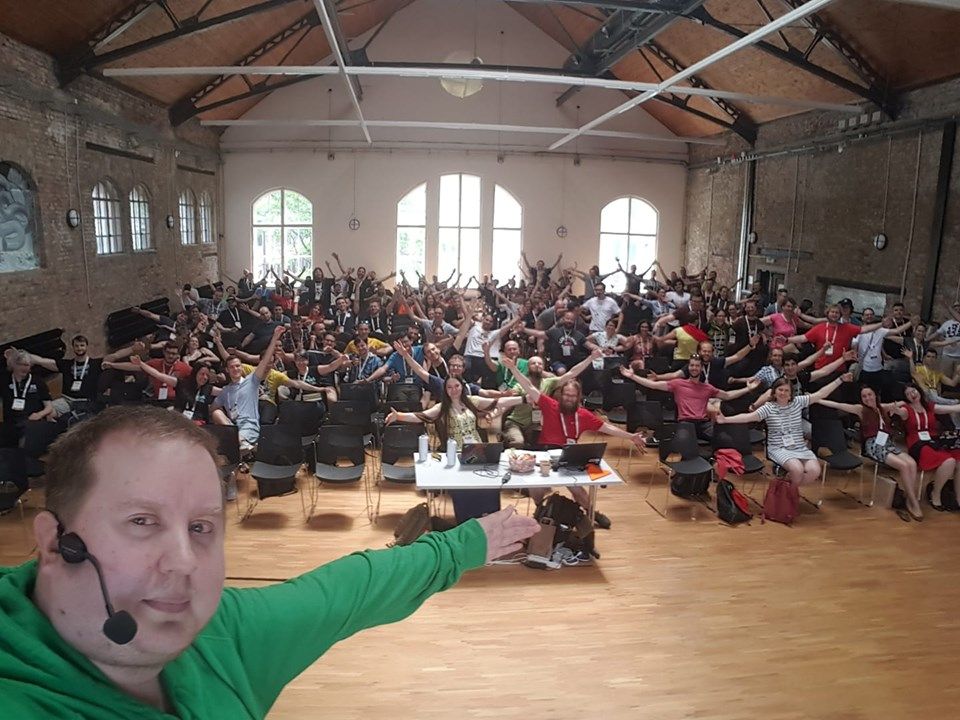
I've also been eager to experiment with new ways to build communities and build things that developers are interested in. Most recently this spring I started monthly livecoding series on Youtube called codebase. I'm not super comfortable with creating things on video but in a world where everyone is now sitting at home, I'm experimenting with it. I want to keep providing interesting opportunities to learn and explore new ideas to my communities and since I'm active in multiple different tech communities, I'd like for the people in those to meet each other and learn from each other.
Final words
I've been so privileged that I've been able to experience all these things that I have. First turning my hobby of software development into a career that took me to Silicon Valley and back and then turning my other hobby of community building into a career as well that has taken me all around Europe.
That's why my mind is constantly in this very confused dual state where at one side, I understand how amazing things I've been able to do in such a short time. But on the other side, it feels like my career progression has been so much slower than all the stories I see on social media.
What I really want to say with this blog post is this: we all advance on our pace. So much seems to be down to luck: who you meet and when, what opportunities come up, what job openings are open when you're looking and so on and so on. I've said no to many opportunities that took me weeks to make decision to say no to – and every now and then I think what could have happened.
Especially the way this pandemic slowed things down to a halt in many aspects, it hasn't been easy to cope with mentally.
If something above resonated with you, let's start a discussion about it! Email me at juhamattisantala at gmail dot com and share your thoughts. This year, I want to have more deeper discussions with people from around the world and I'd love if you'd be part of that.